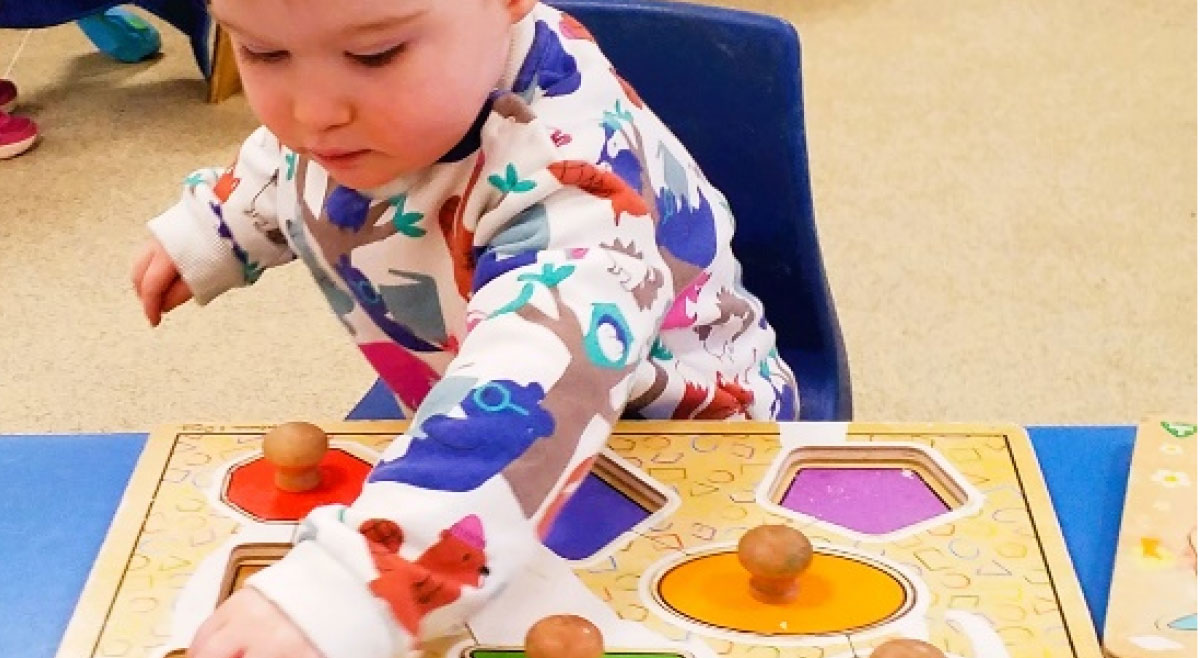What are Fine motor skills?
Fine motor skills involve small muscles working with the brain and nervous system to control movements in areas in the body such as the hands, fingers, lips, tongue, and eyes. Developing this ability in children helps them complete everyday tasks, such as eating, getting dressed, and manipulating objects and the muscles needed later for writing. These skills help contribute to a child’s independence across the areas of learning. Developing these fine motor skills promotes confidence and navigating and exploring the world with confidence and independence.
Children are constantly developing their fine motor skills from the onset. Babies start to wriggle their fingers and toes from the day they are born. When children start to grasp objects with their hands, they will use their whole hand or fist to grab them. As the muscles in their fingers develop and strengthen, children start to use a pincer movement with their fingers and then eventually, whole hand movements will transition to the child using their fingers to pick up items.
Developing fine motor skills at Willows
Here at Willows, we believe in the importance of developing fine motor skills, therefore use a variety of ways to help promote it in the setting. Our children need as many opportunities as possible to develop their movement skills so they can grow in confidence to explore the world around them. Like any muscle, these small muscles in the hands and feet need to be regularly utilised to develop strength, agility, and dexterity.
From the onset, when our children join as Caterpillars (our 1yr olds) we encourage the children to feed and drink themselves and wash their hands after eating (with plenty of supervision). We have a variety of shape sorters and objects for the children to pull and lift and fit puzzles. The children also do lots of mark-making, using a range of age-appropriate writing tools.
When our children are at the walking stage and are around 18 months, independence is promoted more, as their comprehension increases. They are encouraged to put on their coats when they go outside and take off, put on their own shoes after their afternoon nap, dress when required and serve their own food and pour their own milk or water, from their jugs. Throughout the setting, they have lots of opportunities for mark-making with easels in both our under 3s and preschool room, which would have different writing tools added daily.
Once children reach Pre-School, their fine motor skills are extended. As well as all the inside activities, such as mark making, we have lots of loose parts in the room, some of which require hand-eye coordination to pick up small objects. Fine motor is also prevalent in our garden, as we have giant tyres in the garden which the children can grab hold of with their hands when climbing on them. We also have opportunities for digging, building blocks for construction and of course, mark-making opportunities outside.
Simple ways you can help at home:
*Cooking Regularly involving young children in preparing and cooking food is a motivating way to develop fine motor skills. Mixing, squeezing, pouring and spreading during cooking helps to develop fine motor and hand-eye coordination skills. Rolling and flattening the dough with the hands or with a rolling pin helps children practice using both hands in a coordinated way. Pouring ingredients into bowls and spooning batter into tins are good ways to practice hand-eye coordination.
Brushing their teeth – A good way to start the fine motor skills, first thing in the morning. Brushing your teeth for thing recommended 2 minutes in the morning and before going to bed, will get those arms and hands moving – say cheese!!
Drawing, colouring, or painting – A resource so simple and easy to access at home. This helps the children strengthen their hand muscles, which would later be needed for their writing skills. There are a variety of writing tools that you can use, such as chunky crayons for babies which you can then later transition to pencils or preschoolers. The list is endless!
Extracted from Fine motor skills – Help for early years providers – GOV.UK (education.gov.uk)



